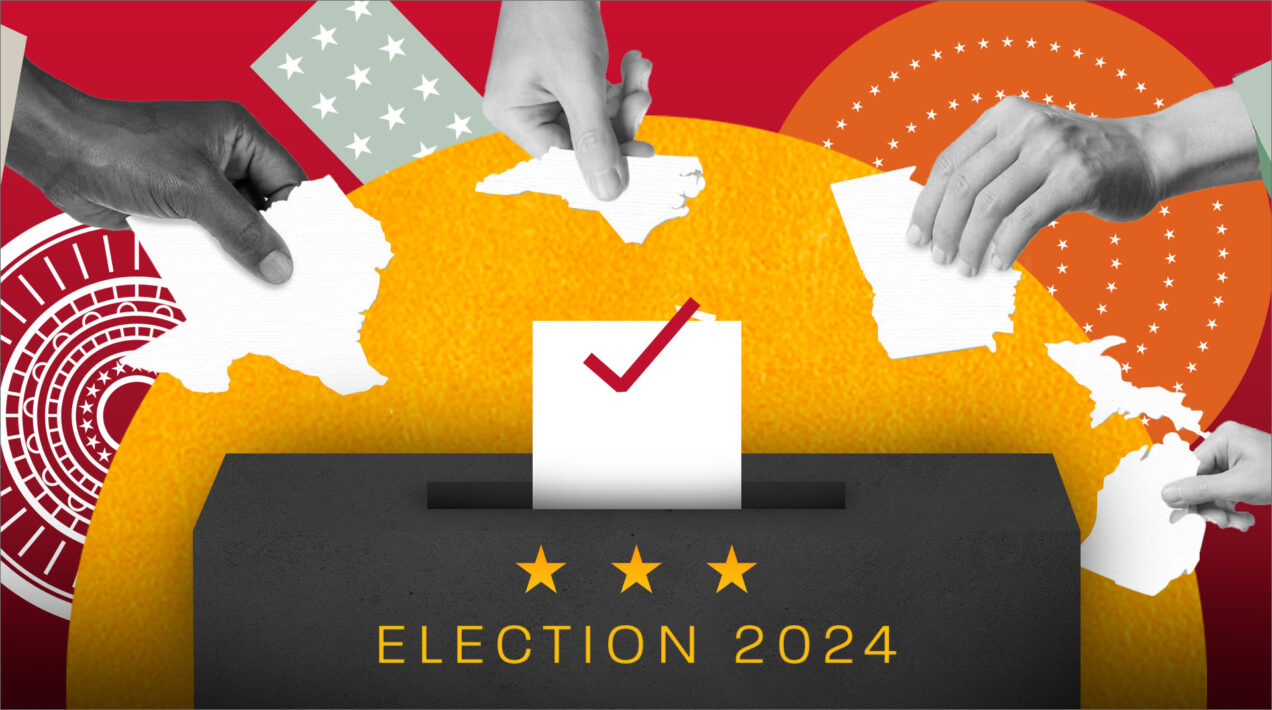By Rayna Young, MPP, Center for Policy Analysis and Research
On October 16, the Nebraska Supreme Court ruled it unconstitutional to deny voter registration to formerly incarcerated individuals, reinstating the voting rights of nearly 7,000 Nebraska residents. This decision mirrors those in Oklahoma, New Mexico, and Minnesota, which have passed laws to collectively restore voting rights to another 10,000 formerly incarcerated individuals. However, unlike most states, which use a winner-take-all system to allocate electoral college votes, Nebraska awards its votes by a congressional district method. In 2020, President Joe Biden won one of the state’s three districts, earning him one electoral vote. Now, with Democratic nominee Kamala Harris and Republican nominee Donald Trump locked in a fierce battle for every electoral vote, these newly reinstated voters could play a pivotal role.
While these states have expanded access to the ballot box, millions of Americans with felony convictions remain barred from voting. This includes over 1.8 million Black Americans, who continue to be disproportionately impacted by restrictive state laws. A federal law restoring voting rights for formerly incarcerated individuals could dismantle state-level barriers and ensure broader access to civic participation across the nation.
In March 2024, the Congressional Black Caucus Foundation’s (CBCF) Center for Policy Analysis and Research published Unshackling the Vote: Restoring Civic Participation for Persons Recently Released from Incarceration. This policy brief discusses H.R. 4987, a bill proposed by Rep. Jasmine Crockett (D-TX) in May 2023 to immediately restore voting rights for individuals with criminal convictions upon their release from prison. But as of today, H.R. 4987 and its Senate counterpart, S. 1677, remain stalled. Other proposals from Democratic lawmakers, such as H.R. 6643, which would abolish felon disenfranchisement in federal elections, and S. 4217, aimed at restoring voting rights for individuals released under the First Step Act who have not reoffended, have faced the same roadblock: referral to the Committee on the Judiciary in each chamber, with no further action.[i]
Since releasing Unshackling the Vote, the CBCF has launched a Voting Rights Scorecard, a powerful tool that shines a light on the voting rights landscape across the 15 states with the largest Black populations. Each state was assessed in four critical areas, including felon disenfranchisement, a key factor in the broader fight for voting rights. The findings were revealing. Five states (Maryland, Michigan, New York, Ohio, and Pennsylvania) have enacted laws that support re-enfranchisement. Seven states (Arkansas, Alabama, Georgia, Louisiana, North Carolina, South Carolina, and Texas) offer a process for individuals with felony convictions to vote; however, there are notable barriers or exceptions that may complicate access. Three states (Florida, Mississippi, and Virginia) impose extensive limitations on voting rights for individuals with felony convictions. The scorecard underscores significant disparities between states: in Maryland, individuals with criminal convictions can register to vote as soon as they are released, while in neighboring Virginia, a felony conviction results in a lifetime ban from voting unless the governor intervenes to restore an individual’s rights.
Formerly incarcerated people deserve the right to vote in all 50 states. You have the power to build a more inclusive democracy by voting for state officials who support legislation to restore this essential right. Visit our Election 2024 page for comprehensive voter information and explore Unshackling the Vote to learn more about federal solutions to end felon disenfranchisement. Together, we can help ensure that every voice is heard.
[i] The First Step Act works to reduce incarceration at the federal level by allowing people currently incarcerated for non-violent drug charges to apply for lower sentences. The law was passed in 2018 by then-President Trump after it passed with bipartisan support in Congress.
